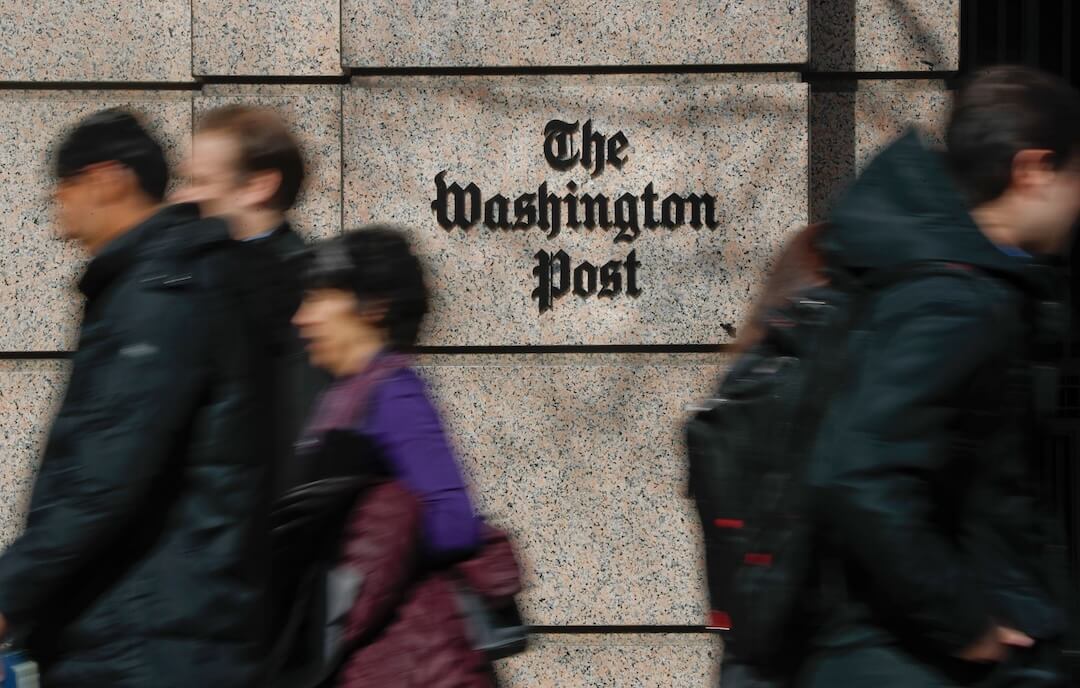The opening panel of the American Society of News Editor’s convention on Tuesday starred an unusual lineup: five heavy-hitting top female journalists.
ASNE, long a bastion of white male editors, intentionally decided to have a high-powered, women-only panel this year. It was the brainchild of Wanda Garner Cash, associate director of University of Texas’s journalism school, who has held several top newspaper editor jobs.
-

- “This is extremely rare, probably unprecedented in my life,” said panelist Chrystia Freeland. (Photo by Alicia Shepard)
The “Innovative Newsroom Leadership” panel included Jill Abramson, editor of The New York Times; Arianna Huffington of the Huffington Post; Kathleen Carroll, AP executive editor; Donna Byrd, publisher of of TheRoot.com; and Chrystia Freeland, editor of Thomson Reuters Digital. Gwen Ifill of “Washington Week” and PBS “NewsHour”moderated.
“The fact that they are all women is incidental but notable,” said Cash, who is on the ASNE planning committee. “I wanted all women up there but didn’t want to make it about shattering glass ceilings but about breaking through entrenched institutional barriers. These women are leaders pushing for cultural changes in news rooms and encouraging and rewarding innovation.”
They are newsroom leaders who happen to be women.
“My hope is the audience will look up and realize the innovators are all women and a light bulb will go off, and they’ll see this is a new trend in American journalism,” she said.
George Stanley, Milwaukee Journal managing editor, is a co-chair of this year’s convention held in Washington, D.C., at the Marriott Wardman Park.
“We wanted to make a statement with that opening panel,” he said, “without actually making a statement. We wanted the makeup of that panel of top leaders, entrepreneurs and innovators to speak for itself – just as the makeup of all those other panels throughout the years had sent a different message, intended or not.”
The message it sent
Freeland joined Thomson Reuters in March 2010 as global editor-at-large. A year later, she was named to a newly created position in which she is responsible for online, mobile and digital, including Reuters.com.
“This is the probably the first panel I can think of that I have been on that is all women apart from another that was a non-profit,” said Freeland. “This is extremely rare, probably unprecedented in my life.”
Freeland, who got her first job in journalism in 1991, calls herself a feminist.
“As a feminist, it often makes me sad, particularly since I’m mostly a business journalist and in the professional world I inhabit, that there are often so few women,” said Freeland. “That worries and disappoints me. I was really thrilled to be on a panel of all women. What I particularly like is it’s not a panel to talk about women’s issues.”
Ifill began the panel by saying, “It’s interesting to look across the panel and realize we are not talking about contraception or women’s health issues.”
After that, not another word was spoken about gender. In fact, there was more discussion about the age gap in news rooms between young and digitally savvy and older grizzled journalists married to strong ethically sound reporting.
After the panel, Huffington echoed Freeland’s feelings. “It is great to be on a panel where we weren’t talking about contraception,” she said. “It’s not often I’m on a panel with all women journalists. In fact, I can’t remember another time, actually.”
Not everyone is so impressed. I emailed the AP’s Carroll before the panel to see what she thought.
“Really, an all girl question? C’mon….”







Comments